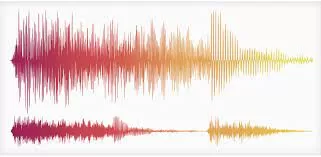
While many individuals infected with COVID-19 experience mild symptoms and recover within a few weeks, the global pandemic caused by the SARS-CoV-2 virus continues to pose a significant health threat. Some of those infected may develop more severe illness and pneumonia, leading to a bleaker prognosis. While techniques for assessing patients’ risk have been developed, current diagnostic and prognostic tools primarily rely on costly and less accessible imaging technologies like radiography, ultrasonography, or computed tomography (CT). Therefore, there is a pressing need for the development of a simpler and more readily available prognostic tool that enables healthcare providers to identify individuals who have developed or are at risk of developing severe disease. This would streamline patient triage and facilitate earlier intervention, even in home or primary care settings.
In the early stages of the COVID-19 pandemic, a research team led by IBEC and Hospital del Mar, with support from the Universitat Politècnica de Catalunya (UPC), CIBER-BBN, and CIBERES, conducted a study based on the analysis and interpretation of cough sounds. This method is presented as a potentially predictive, straightforward, and user-friendly tool for assessing the risk of severe pneumonia. The study involved recording cough sounds voluntarily made by 70 patients with SARS-CoV-2 infection, all within the first 24 hours of their hospitalization. IBEC conducted an acoustic analysis of these recordings, revealing significant variations in cough sounds based on the severity of the respiratory condition, which had previously been confirmed by imaging tests and the need for supplemental oxygen.
According to the findings, this approach could be employed to categorize COVID-19 patients as having mild, moderate, or severe cases, as well as to monitor patients with chronic COVID-19. The study utilized data collected at Hospital del Mar between April 2020 and May 2021, and the results were published in the European Respiratory Journal Open Research.










